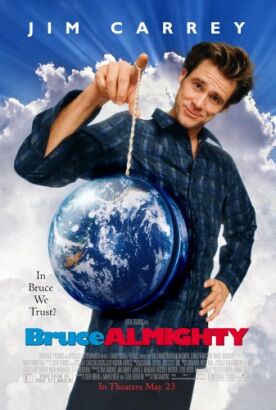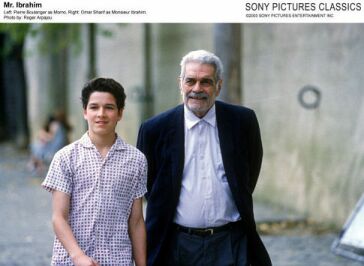Sorry, Haters
Boy, does the Penn family have a strong line in psycho nut jobs with an interest in politics! First Sean Penn gives us Sam Byck, the would-be assassin in The Assassination of Richard Nixon, and now, in Jeff Stanzler’s Sorry, Haters, Robin Wright Penn gives us Phoebe Torrance, who makes the pathetic loser and apprentice maniac Sam look like Hubert Humphrey. Or perhaps Judge John Sirica who took down Nixon in a more socially acceptable fashion. Phoebe is crazy in a much more dangerous and, it must be said, rather more fascinating way. How are you going to top this one, Sean? The trouble is that she is also crazy in a completely unbelievable and, indeed, quite ludicrous way.
For there is a reason why nothing like the events represented in this film has happened in real life, and it isn’t that the mentally ill segment of our population just hasn’t got around to it yet. Acts of terrorism are political acts. They are not the work of sociopaths, however reassuring it might be to think so, but of people who have a political point of view, however misguided, which they are determined to act upon. This determination arises not out of psychotic delusion but out of the stone cold sober judgment of a more or less large political faction based in the Islamic world that we in the United States, merely by existing and living our lives according to liberal principles are their enemies. Any film which doesn’t recognize this and which portrays terrorism as something else amounts to a trivialization of a serious subject.
Phoebe is an accountant with a television production company in New York who one night gets into a cab driven by Ashade Mouhanna (Abdellatif Kechiche), a French-speaking Syrian immigrant whose brother is being detained — quite without any justification, of course — at Guantánamo. He tells her his story, and she offers to help him find legal assistance to get his brother out of detention. The set-up looks familiar, and we think we’re getting one type of movie — probably yet another polemic against the Bush administration’s “War on Terror” — when in fact we’re getting quite another. Ashade remains all that the polemical movie could want him to be — innocently persecuted, sympathetic, utterly opposed to terrorism — but Phoebe doesn’t become the representative of understanding, tolerant, caring liberalism that we expect her to be. On the contrary, she constantly reveals herself to be more and more alarmingly unbalanced until the shocking climax when she herself — caution, spoiler alert! — is prepared to commit an act of terrorism for which she means Ashade to take the blame.
There is a certain meretricious cinematic charm in this portrait of a psychopath where we weren’t expecting one, but it is achieved only at the expense of rendering irrelevant the rest of the stories the film has to tell. I am perfectly certain that there are among us good Arabs, like Ashade, in plenty, but they have nothing to tell us about the terrorism engaged in by the bad ones — who don’t appear in this film and presumably don’t exist except as something people are foolishly frightened about. And it’s not only poor Ashade and his family who are reduced to mere victims of Phoebe’s mania but also Phoebe’s boss (Sandra Oh), pathological jealousy of whom is what seems to have turned her wits. I am particularly cross with Mr Stanzler for making the luminous Elodie Bouchez, who plays Ashade’s Canadian sister-in-law, a mere footnote to crazy Phoebe’s pathography.
The War on Terror and Islamic fanaticism are the great international and political issues of our time and will be for years to come. Here they are made into nothing more than the backdrop to the story of a twisted — and Western — individual. Or, to put it another way, there is a lot to be said on both sides about the “clash of civilizations,” and it badly needs saying by artists and film-makers as well as by pundits and politicians. But any such discussion is short-circuited by the not-so-subtle suggestion that it’s all just a matter of the abnormal psychology of the odd fantasist and outsider.
Discover more from James Bowman
Subscribe to get the latest posts to your email.








